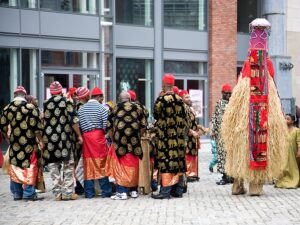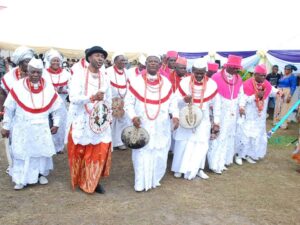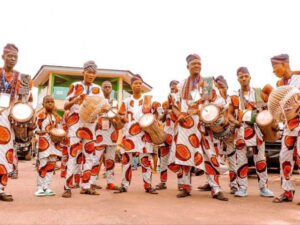
- Description
- Curriculum
-
1ASCRIBED NAMES
This course explores the rich cultural tradition of Orúkọ Àbísọ, or ascribed names, in Yoruba society. Learners will delve into the cultural, spiritual, and emotional significance of names given to children based on specific circumstances surrounding their birth. Through engaging examples, interactive exercises, and storytelling, the course brings to life how Yoruba naming customs preserve heritage, reflect familial experiences, and document history. Perfect for students of African studies, linguistics, or anyone interested in Yoruba language and culture.
-
2BASIC CONVERSATIONS WITH VERBS
In this dynamic beginner course, learners move from recognizing letters to applying real-life Yoruba through verbs and everyday conversation. You'll learn to ask and answer practical questions, describe actions with present and past tense verbs, and connect your speech with cultural expressions used in daily interactions. This course builds your confidence in speaking, listening, and understanding Yoruba sentence structures, with a special focus on the use of action words (ọ̀rọ̀ ìṣe).
Through guided practice, dialogue modeling, and interactive translation tasks, you’ll be equipped to navigate common conversational scenarios like cooking, eating, going to places, and expressing emotions in Yoruba.
-
3PRAISE NAMES
In this enriching course, learners explore the poetic and powerful world of Orúkọ Oríkì—Yoruba praise names. These names go beyond identity; they carry ancestral pride, spiritual meaning, and emotional upliftment. Learners will examine the cultural significance of oríkì, understand when and how they are given, and learn to identify and use praise names for both boys and girls.
Through storytelling, pronunciation drills, gender-matching games, and name analysis, participants will build a strong understanding of how Oríkì nurtures confidence and cultural rootedness. Ideal for those studying Yoruba language, culture, or African naming traditions.
-
4REINCARNATION NAMES
This course explores the powerful and emotional practice of naming àbíkú—children believed to be born and reborn repeatedly due to spiritual or metaphysical ties in Yoruba belief. Known as “spirit children,” àbíkú are given special names that reflect hope, resistance, fear, or pleading.
Learners will understand how these names serve both cultural and spiritual purposes, examine their deep meanings, and discover how language expresses community struggle with infant mortality and faith in reincarnation. Through guided analysis, pronunciation practice, and name-meaning matching exercises, students will deepen their appreciation for Yoruba worldviews and oral traditions.





